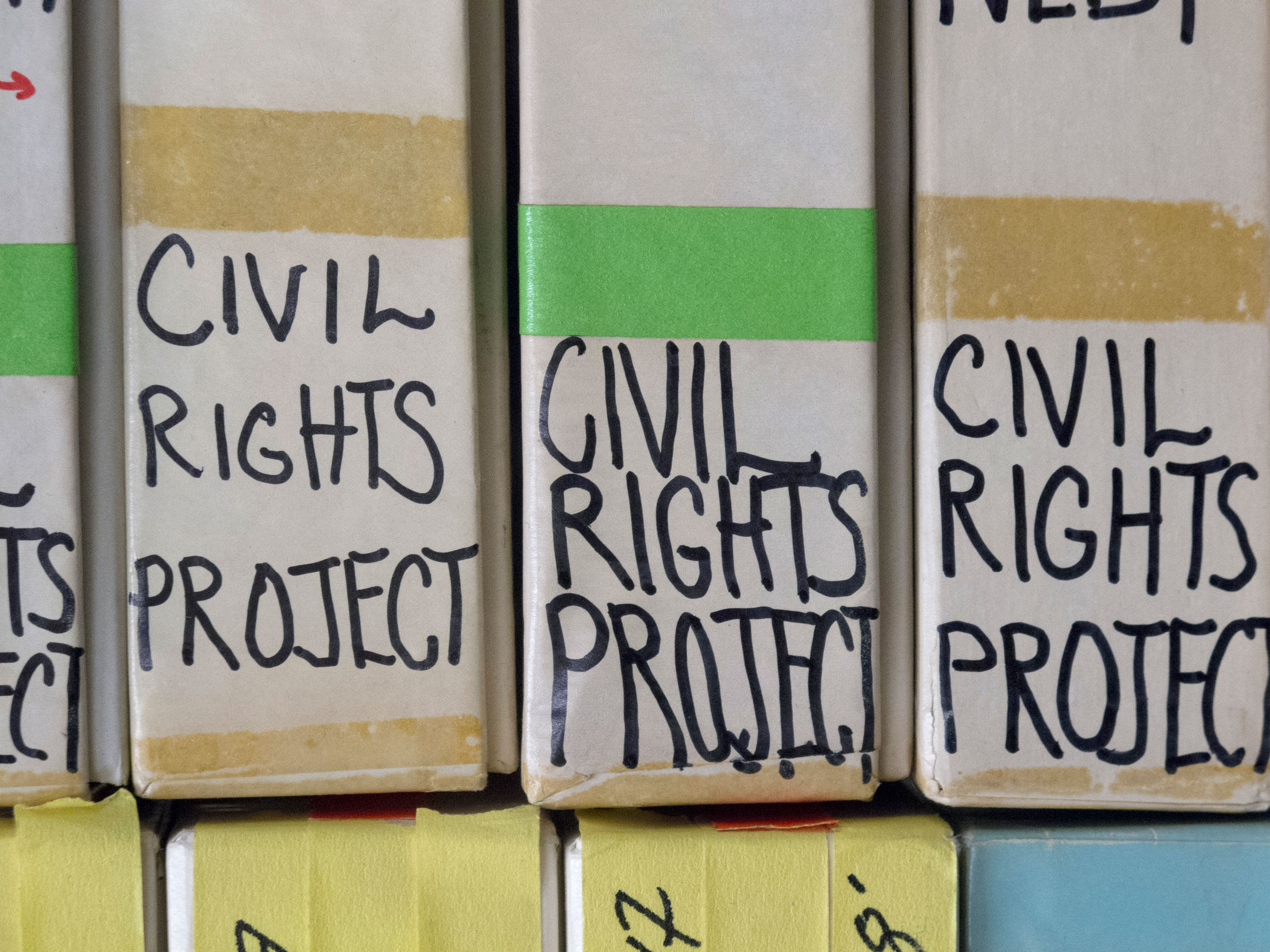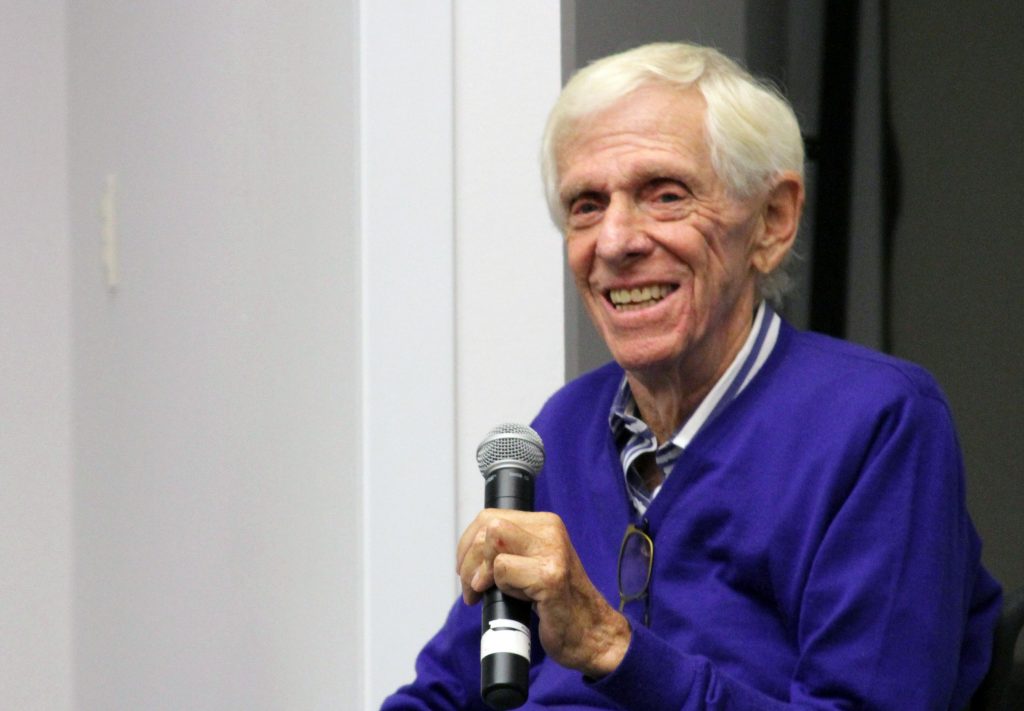Jack Willis Collection

In 2014, the WashU Libraries Film & Media Archive acquired the collection of prolific documentary filmmaker and producer Jack Willis. The Jack Willis Collection contains 700 film reels, 300 audio reels, video, and manuscript material from Willis’ original, independent productions.
Jack Willis’ films tackled racism, poverty, and environmental issues while showing an affinity for what Willis called “unheard voices, unserved voices.” Willis started working in television as an associate producer for David Susskind’s interview show Open End. Many of the guests on this program were civil rights leaders who had become prominent by the early 1960s.
A meeting with Jim Forman, head of the Student Nonviolent Coordinating Committee (SNCC), led Willis to travel to Mississippi and document the voter registration efforts of SNCC during Freedom Summer.
Willis’ experience in Mississippi fanned his passion for civil rights and, after his first independent project, The Streets of Greenwood, Willis focused on making documentaries, writing, directing, and producing films including, Lay My Burden Down (1966), Appalachia: Rich Land, Poor People (1968), Hard Times in the Country (1969), Every Seventh Child (1967), Paul Jacobs and the Nuclear Gang (1979), The Uncompromising Revolution (1989), and many others. During the years of his filming, Willis had hostile encounters with Sheriff Jim Clark in Selma, Alabama, and elsewhere as he documented the struggle for civil rights.

Willis continued developing and producing television programs such as satirical news television series, though his main focus remained on documentaries. Willis’ satirical news series include his The Great American Dream Machine, which featured humorist Marshall Efron and Albert Brooks; and the Emmy Award-winning The 51st State for WNET. Of his work with TV programming, Willis said: “I wanted to be involved in programming that was more informative and entertaining, to try to reach more people.”
Between 1966 and 1971, Willis produced a diverse range of documentaries for National Education Television, a forerunner of PBS. From 1978-1980, Willis conducted interviews with many people who had been deeply involved with the civil rights movement. These interviews including Rosa Parks, Fred Shuttlesworth, John Lewis, Andrew Young, Stokely Carmichael, James Forman, and Ella Baker. Although this project was never completed and has never been viewed publically, a large part of the Jack Willis Collection contains over 81 original interviews from these participants in the civil rights movement.
The Film & Media also holds the Henry Hampton Collection; the addition of the Jack Willis Collection expands the unique and original material relating to the civil rights movement housed at the Libraries.
Access these Materials
Search the Jack Willis Collection on ArchivesSpace
Please contact Andy Uhrich for information on the media holdings for this collection.
Watch Streets of Greenwood, preserved by a National Film Preservation Grant
Contact
- Department
- Library
- Name
- Andy Uhrich
- Job Title
- Curator of Film and Media
- Email Address
- jauhrich@wustl.edu
- Phone Number
- (314) 935-3301
